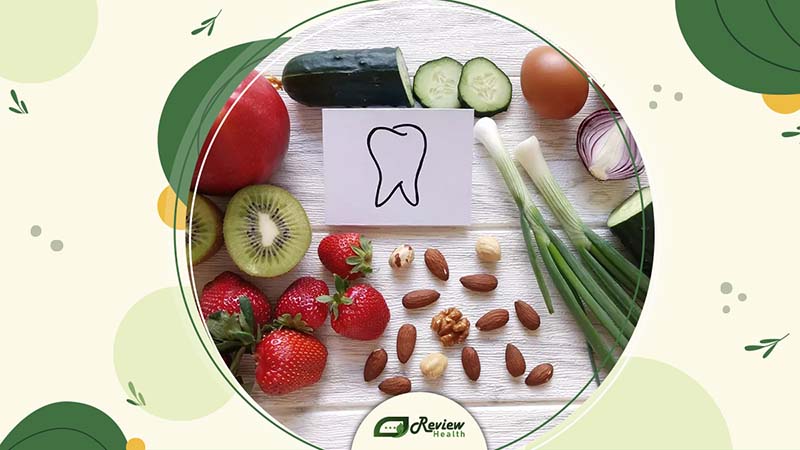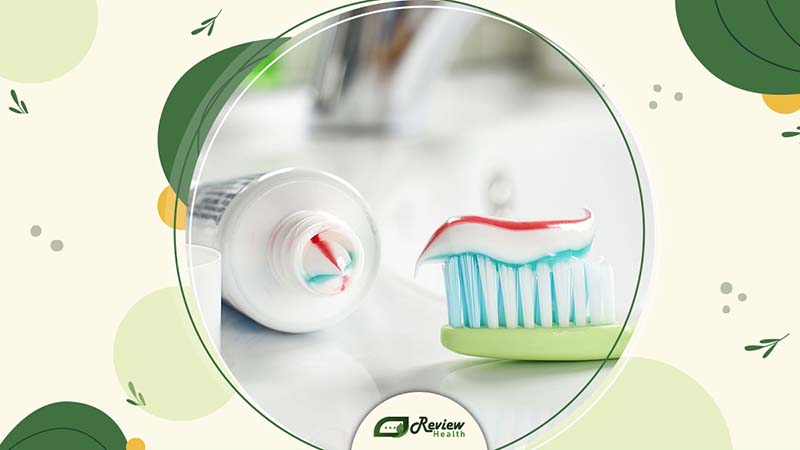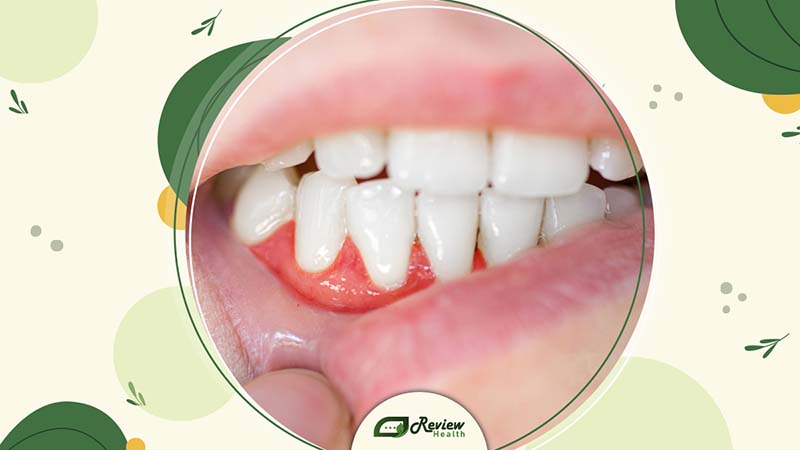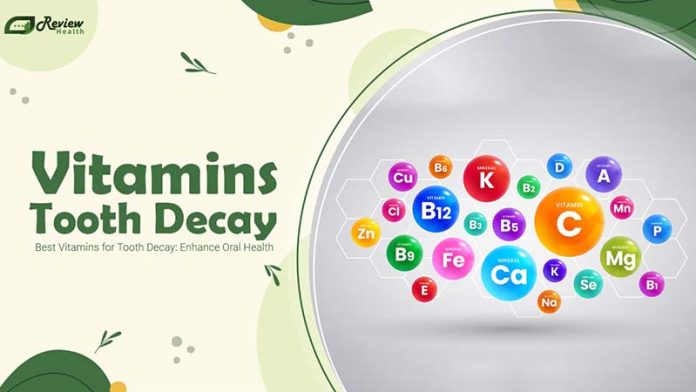Vitamins for tooth decay: Maintaining and balancing good oral health is vital for overall well-being. Besides brushing, flossing, and regular visits to the dentist, your diet significantly impacts the health of your teeth and gums. A lack of essential vitamins and minerals can contribute to tooth decay and other oral health problems. Ensuring a balanced diet with adequate nutrition is crucial. Learn more about the key vitamins for tooth decay on Review Health, where we discuss how to keep your oral health in top condition.
The Relationship Between Vitamins and Tooth Decay
Vitamins are crucial for sustaining good oral health and warding off tooth decay. Vitamin D, for instance, enhances the body’s ability to absorb calcium and phosphate—minerals critical for hard, healthy teeth. Vitamin C plays a significant role in gum health by reducing the chances of developing gum diseases, which can otherwise lead to decay. Vitamin A is equally important as it boosts saliva production, helping to naturally clean your teeth and remove particles that could cause decay.

B vitamins are vital for maintaining the health of oral tissues, which helps prevent conditions that may indirectly lead to tooth decay. Additionally, Vitamin K collaborates with Vitamin D and calcium to ensure teeth are properly mineralized, providing a robust defense against decay. Collectively, these vitamins fortify teeth and gums, thereby minimizing the risk of tooth decay and enhancing overall oral health.
Top 13 Essential Mineral and Vitamins For Tooth Decay
Vitamins are organic compounds crucial for various bodily functions, including maintaining optimal oral health. Here’s a closer look at the vitamins essential for preventing tooth decay:
Vitamin D – Vitamin for Tooth Decay
Vitamin D, a fat-soluble vitamin, plays a pivotal role in overall health by aiding the absorption of calcium and phosphorus, both vital for building and maintaining robust bones and teeth. Beyond this, it regulates the immune system, reduces inflammation, and fosters cell growth and differentiation.

Specifically regarding dental health, Vitamin D holds particular significance. It helps prevent tooth decay and gum disease by overseeing the production of antimicrobial compounds in saliva, crucial for combating harmful oral bacteria. A deficiency in Vitamin D can result in weakened teeth and gums, elevating the risk of tooth decay, loss, and periodontal disease.
Calcium – Strengthens Teeth
Calcium, a mineral essential for strong bones and teeth, is also integral for overall well-being, contributing to muscle and nerve function, and blood clotting. In terms of dental health, calcium takes on added importance as it aids in the construction and maintenance of sturdy tooth enamel.

Enamel serves as the tough, protective outer layer of teeth, shielding against decay and cavities. Insufficient calcium levels can lead to weakened enamel, rendering teeth more susceptible to damage. Additionally, calcium helps neutralize acidic substances in the mouth, which can gradually erode tooth enamel.
Omega 3 – Reduces Gum Inflammation and Prevents Tooth Decay
Omega-3 fatty acids possess potent anti-inflammatory properties, which can significantly reduce gum inflammation. Healthy gums form a protective barrier around teeth, diminishing the risk of decay. Omega-3s also contribute to overall immune health, aiding in the management of oral infections, further fortifying dental defenses.
Vitamin A – Promotes Gum Health
Vitamin A, a fat-soluble vitamin, plays a pivotal role in maintaining healthy teeth and gums. It promotes tissue growth and repair within the oral cavity, including the enamel covering teeth. Vitamin A also facilitates saliva production, a critical defense mechanism that helps neutralize harmful mouth acids, thus safeguarding against decay.

Moreover, its potent antioxidant properties combat inflammation and fight infections, offering protection against gum disease and related oral health issues. Food sources rich in Vitamin A include carrots, bell peppers, fish, and egg yolks.
Vitamin B – Helps Prevent Mouth Ulcers and Tooth Decay
Vitamin B, encompassing Thiamine, Riboflavin, Niacin, Pyridoxine, and Cobalamin, each play distinct roles in oral health. Deficiencies in these vitamins can manifest as oral ulcers and tongue inflammation, leading to oral discomfort that impedes proper hygiene maintenance.
Vitamin C – Helps Prevent Gum Inflammation
Vitamin C, also known as ascorbic acid, is a water-soluble vitamin abundant in various fruits and vegetables. It facilitates the growth, development, and repair of all body tissues, including the gums and teeth. Vitamin C is indispensable for collagen synthesis, essential for maintaining robust connective tissue within the gums.
Furthermore, its antioxidant properties offer protection against gum and tooth damage induced by harmful free radicals. Additionally, Vitamin C exhibits anti-inflammatory effects, aiding in the prevention of gum disease.
Vitamin E – Improves Gum Health
Vitamin E contributes to the regeneration of skin and gum tissue, while combating the adverse effects of free radicals and oxidation within the body. Found in sources like nuts, seeds, and olive oil, Vitamin E also supports estrogen production, crucial for fortifying bones and teeth.

Phosphorus – Strengthens Teeth
Phosphorus plays a pivotal role in facilitating calcium absorption and promoting healthy tooth enamel. When combined with calcium, phosphorus aids in remineralization, a process vital for repairing minor enamel damage. This not only strengthens teeth but may also result in a brighter smile and reduced tooth sensitivity over time.
Iron – Helps Prevent Gum Inflammation
Iron is indispensable for maintaining healthy mucous membranes in the mouth. Deficiencies can manifest as mouth soreness and inflammation, impairing essential functions such as eating, speaking, and maintaining proper oral hygiene. Poor oral hygiene increases the risks of decay and gum disease.
Potassium – Improves Tooth Health
Adequate potassium levels are associated with a reduced risk of severe gum disease, dental plaque accumulation, and harmful oral bacteria proliferation. Most individuals obtain sufficient potassium through a balanced diet, given its prevalence in numerous food sources.
Fluoride – Helps Prevent Tooth Decay
Fluoride plays a crucial role in strengthening tooth enamel, rendering it more resistant to acid attacks from oral bacteria. Additionally, fluoride aids in the remineralization process, facilitating the repair of minor enamel damage and contributing to overall dental health.

Iodine – Improves Gum Health
Iodine is instrumental in supporting thyroid function and maintaining optimal gum health. Proper thyroid function is intricately linked to hormonal balance, which in turn plays a pivotal role in managing inflammation within the oral cavity.
Zinc – Helps Prevent Tooth Decay
Similar to Vitamin C, zinc serves as an immune system booster, with the added benefit of promoting oral health. Zinc supplementation may aid in preventing cavities and gum disease, while also being utilized therapeutically for various oral infections. While a balanced diet typically suffices for meeting zinc requirements, most multivitamins incorporate a daily dose of this essential nutrient for added oral health support.
Related articles
- Healthy Food List: 12 Best Foods That Prevent Tooth Decay and Tips for Cavities
- List of Foods That Cause Tooth Decay: What to Avoid
- 7 Stages of Tooth Decay: A Guide to Prevention and Treatment
- Learn How to Prevent Tooth Decay Naturally With Just 13 Simple Ways
Hidden Risks of Vitamin Deficiency for Oral Health
Recent research underscores the significant impact of vitamin deficiencies on oral health. Shortages in vitamins A and D can lead to enamel issues and increase vulnerability to dental diseases. Vitamin E has been found effective in treating oral mucositis, a painful condition affecting the mouth’s lining. Vitamin K plays a crucial role in blood clotting, particularly important during dental surgeries.
Deficiencies in B-complex vitamins and vitamin C can result in enamel hypomineralization and various soft tissue ailments, such as aphthous stomatitis and gingival petechiae. Moreover, insufficient vitamin B7 compromises the immune response, raising the risk of oral candidiasis.

These findings highlight the profound impact of vitamin deficiencies on children’s oral health. It emphasizes the necessity for collaborative efforts between dental professionals and caregivers to ensure effective pediatric care.
Signs of Vitamin Deficiency Related to Oral Health
Identifying signs of vitamin deficiency related to oral health is crucial for early intervention. Here are key indicators outlined in reputable sources:
Tooth Decay and Sensitivity
Insufficient intake of vital vitamins like vitamin D or calcium can weaken tooth enamel, hampering the remineralization process. This makes teeth more prone to decay and heightened sensitivity, manifesting as increased vulnerability to cavities and discomfort when consuming hot or cold foods.
Bleeding or Swollen Gums
A deficiency in vitamin C may lead to scurvy, characterized by inflamed, swollen gums prone to easy bleeding. Similarly, inadequate vitamin K levels can impair blood clotting, contributing to gum bleeding and exacerbating oral health issues.
Slow Wound Healing
Vitamin C plays a pivotal role in collagen synthesis, essential for tissue repair. Vitamins A and E act as antioxidants, promoting efficient healing. Deficiencies in these vitamins can result in delayed healing of oral wounds, prolonging discomfort and increasing susceptibility to infections.
Mouth Ulcers and Tongue Changes
Deficiencies in B vitamins, particularly B12 and folate, can manifest as painful mouth ulcers, inflammation, and glossitis (swollen tongue). Iron deficiency may also present similar symptoms, underscoring the importance of adequate intake of these nutrients for oral health.
Dry Mouth and Bad Breath
Inadequate vitamin A intake can diminish saliva production, leading to a dry mouth environment conducive to bacterial proliferation. This often culminates in bad breath, highlighting the significance of maintaining optimal levels of this vitamin for oral health.
FAQ
Weak bones and tooth decay is caused by the deficiency of which vitamin?
A deficiency in vitamin D is often associated with weak bones and tooth decay. Vitamin D is essential for the absorption of calcium and phosphate, crucial for maintaining strong bones and teeth.
When should you supplement vitamins for teeth?
Supplementing vitamins for teeth is recommended if a deficiency is confirmed or suspected, particularly if you experience symptoms such as bleeding gums, frequent cavities, or tooth sensitivity. Additionally, individuals with limited sun exposure, dietary restrictions, or specific health conditions may benefit from supplements.
What vitamins should be supplemented for weak teeth to be stronger?
To strengthen weak teeth, consider supplementing with vitamins D and K, along with minerals like calcium and phosphorus. Vitamin C aids in maintaining healthy gums, while vitamin A supports saliva production, naturally cleansing the teeth
Conclusion.
For a healthy smile that’s both beautiful and strong, taking care of your teeth goes beyond just brushing and flossing. Nourish your teeth and gums from within by incorporating cavity-fighting vitamins into your diet. Focus on foods rich in phosphorus, calcium, and essential vitamins like D, A, C, K, and B complex. Remember, a little extra TLC through targeted vitamins can significantly boost your oral health. Visit Review Health for more tips on keeping your smile healthy!

